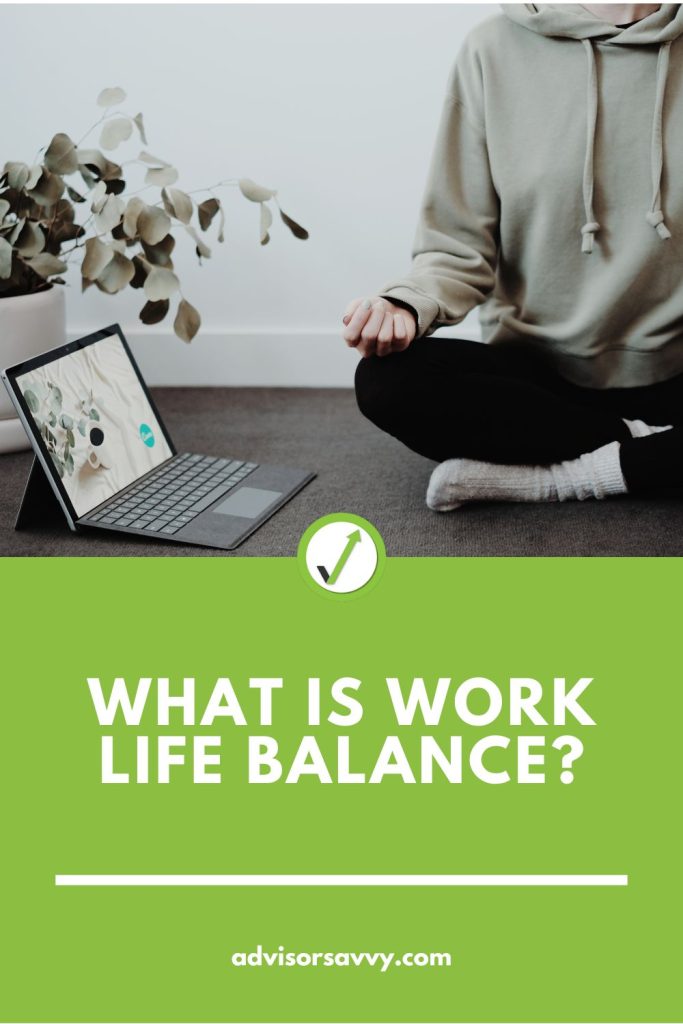
It’s a Saturday morning, and you’re excitedly preparing for a day with your kids and family. But suddenly, your work responsibilities come crashing in and sabotage your plans. This all-too-familiar scenario makes you feel disappointed and frustrated. It might feel like you can never get the best of both worlds between your work and personal life. Sometimes it negatively affects your well being and mental health too. In a post-pandemic work setting where work-related stress has skyrocketed, imbibing work-life balance could help you stay sane. Ready to learn what is work life balance? Read on!

Table of contents
What is work life balance?
Work life balance refers to a state of equally prioritizing the demands of your personal life and those of your career. It goes beyond allocating equal time to professional and personal activities. Rather, a balanced work-life entails having a more realistic and flexible work schedule that reduces the risk of burnout. Some people see work-life balance as the ease of managing one’s personal life while fulfilling the demands of their career. The idea is to be efficient in your workflow. But at the same time, pay attention to your physical and emotional well-being, as well as your social life. It is definitely a lot easier said than done! But mindfulness of the concept and continuing to maintain it will help you find more fulfillment.
The importance of work life balance
Now that we’ve answered the question, what is work life balance, let’s see why it’s important below:
- It improves your mental and physical well-being. This signifies fewer sick days and more energy to execute activities, both at work and in your personal life.
- It minimizes work-related stress. Working overtime is majorly a result of erroneous work responsibilities. It’s the major cause of stress and stress-related issues. In that case, a healthy work-life balance is the right dose.
- It increases productivity. When your well-being improves and stress reduces, your work becomes more efficient. In addition, you can be more attentive to things going on in your personal life.
- It helps you develop a wider range of knowledge and skills. As humans, we all have personal interests and hobbies. As a result, we love engaging in leisure activities related to our interests and hobbies. They can help us develop unique knowledge and skills that are purely for your enjoyment.
- It helps you achieve more success. People have this misconception that success is a difficult thing. To them, it requires an intense commitment to hard work. However, a balanced lifestyle can bring you greater success. In the sense that you don’t have to sacrifice your physical or mental health.
In the same manner, work-life balance is highly beneficial to employers too. Some of its benefits include:
- Enhanced employee productivity
- Low rate of absenteeism among workers
- Workers are motivated and committed
- Improved customer service quality
- Capacity to innovate and stay ahead of competitors
What is an example of work-life balance?
Considering a situation where, as an employee, you work regular hours during the week. On the other hand, you also prioritize your personal life by setting aside quality time for family and friends outside of working hours. Amidst these, you also create time for hobbies, exercises, and relaxation to gain balance. Overall, work-life balance is a life of fulfillment. A life that contributes to your total happiness.
Related Reading: How to Improve Your Credit Score in Canada
CIBC Investor’s Line Offer
Up to $6.95 per online stock or ETF trade. Plus, there’s no minimum account balance.
What causes poor work-life balance?
Although employees desire a healthy work-life balance, there can be forces to contend with. Chief among these are too many workloads and long hours at work. Poor work-life balance can be the result of one or more of the following:
- Financial strain, caused by increased expenses without a corresponding salary increase. When workers are worried about finances or job security, they accept more responsibility. As a result, it becomes challenging to keep a healthy work-life balance due to fear.
- Overutilization of employees due to understaffing. Aside from financial issues, overutilization of employees can also be the cause. Sometimes, employers assign more work to employees than their capacity allows.
- Increasing domestic responsibilities. The presence of children and aging relatives to care for can be a daunting task when mixed with work.
- Extended working hours. Working overtime to achieve your financial goals can also affect your work-life balance. Money isn’t everything! If you sacrifice your health or other aspects of your personal life for work, it may end in disappointment and regret.
- Impact of parenthood. It’s almost impossible to balance parenting responsibilities with work. Surprisingly, a survey recorded 22% of men and 50% of women took a break following the birth of their child — not closer to 100% as you might suspect. Be realistic with yourself about welcoming children into your personal life and the effect it will have on your work life.
- Failure to lead by example. As a manager, you must set positive examples for your employees. To do this, avoid taking on responsibilities outside of work hours. For example, sending emails late at night after work.
- Lack of flexible work arrangements. It reduces workers’ physical and mental health, which can lead to a poor work-life balance.
Related Reading: Asset Rich and Cash Poor: What Does it Mean?
Best Work Life Balance Jobs
How would you like a job that gives you the leverage to set your working hours and gain control over your schedule? Or a job with fewer hours a week for more pay? How about working comfortably from home? Sounds interesting, right?
Finding the perfect but realistic job sets the pace for a healthy work-life balance. Here are the best work-life balance jobs you can find in Canada right now:
- Orthodontist. Orthodontists have control over their schedule. They can work more than 40 hours a week or less.
- Software Developer. As a developer, you can work from home or remotely. Also, some chose to work 40 to 50 hours. It’s the best job in 2023 due to certain factors, like a high salary and flexible hours.
- Hairdresser. Hairdressers have flexible work schedules. They can work part-time, evenings, and weekends.
- Interpreter and Translator. An interpreter or translator is a self-employed consultant. They may choose to set their work hours according to their preferences. Interestingly, they can also choose to work part-time.
- Nail Technician. Nail technicians may work full-time, part-time, 40 hours a week, evenings, or weekends. Those who are self-employed can also set their schedules.
- Recreation and Fitness Worker. A recreational worker may work irregular hours or part-time.
- Dental Hygienist. These workers also work part-time, sometimes only a few days a week.
There are a ton of jobs that can provide good work-life balance outside of those listed above. Sometimes it depends on the employer more than the job itself. When looking for your next job, be sure to get a sense of how demanding the job will be and how much room there is for flex.
Related Reading: Building a Balanced Portfolio: Everything You Need to Know
Work Life Balance Tips
Finding a balance between your profession and personal life is difficult but achievable. Being achievable doesn’t mean it’s a day’s journey. In other words, you’ll begin to see results over time. As a point of note, work-life balance is less about evenly dividing your daily hours between your professional and personal lives. It’s more so an ebb and flow. Sometimes work will take greater precedence and other times your personal life will be more important. The more emphasis you place on work life balance, the better you’ll get at managing it.
The following tips are antidotes that can reduce the poor work-life balance and set you on a happy ride to peace:
- Learn to say NO. Saying NO is one of those difficult but soft skills that can save you a whole lot of energy and time. To achieve work-life balance, always prioritize your tasks. And learn to say NO to lower-priority demands. Remember, saying no doesn’t mean you’re being mean or unhelpful. Rather, it means you’re only accepting responsibilities you can manage and turning everything else away.
- Take Breaks. When your responsibilities are huge, take a 15-minute break every 75 to 90 minutes. It is mostly to relax the brain. Short breaks reduce stress, improve concentration, and keep you engaged.
- Learn to prioritize your health. Develop the habits of exercise, social connection, and meditation in your daily routine. These habits improve your physical, emotional, and mental well-being.
- Take advantage of your lunch breaks. Make it a routine to include breathing exercises and short meditations into your lunch breaks to relieve stress.
- Ask for flexibility. Learn to tell your employer and colleagues what you need. For example, you can request fewer work days but longer hours. And you can also share responsibilities (or what’s not your responsibility) with your colleagues.
- Practice self-compassion. You must accept that mistakes are inevitable and normal. Always find balance by forgiving yourself and cultivating a mindset to grow and learn. It can help you create a healthy work environment and inspire others to do the same.
How can I improve my work-life balance?
Improving your work-life balance requires you to start small while taking time to adjust. Here are ways to improve your work-life balance and live healthily:
- Make it a habit to allocate specific time to attending meetings, checking messages, and doing mentally intensive work.
- Understand how your brain works. If you can’t work with distractions, eliminate them to maximize your productivity.
- Make use of technology, such as apps, to block distracting websites while working. This helps you stay unplugged.
- Set a fixed time to finalize work for the day.
- Take a break, go out for lunch with friends and coworkers, and connect with colleagues.
- Engage in hobbies or activities that excite you and make you feel fulfilled.
- Seek support, define work expectations, or explore options to handle your workload effectively.
- Seek professional advice from a coach or therapist if you feel stuck or overwhelmed.
In essence, gradually focus on achievable targets to sustain new habits. In addition, try to inspect and enforce changes if needed.
Related Reading: Executor of Will vs Power of Attorney: What’s the Difference?
How do you maintain work-life balance?
Here are some essential procedures to help you maintain a healthy work-life balance:
- Set clear boundaries between work and personal life. One way to do this is to make sure your work hours or deadlines are well-defined.
- Prioritize and delegate tasks.
- Establish self-care routines. For example, spending time with loved ones and doing things that bring joy and relaxation.
- Learn to disconnect from work-related activities and stay focused on your personal life.
- Make it a habit to regularly reflect on your work-life balance and determine whether adjustments are needed.
CIBC Investor’s Line Offer
Up to $6.95 per online stock or ETF trade. Plus, there’s no minimum account balance.
What is a good work life balance?
A good work-life balance is a state of effectively managing your work needs while nurturing your well-being. It entails making efforts to fulfill your non-work commitments. In summary, a good work-life balance requires setting clear boundaries, prioritizing tasks, and taking care of one’s health. It drives productivity, satisfaction, and overall well-being.
Read More: Financial Health Checks: Why You Should Do Them Regularly

